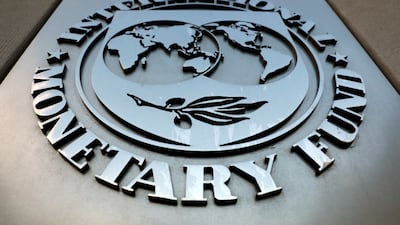The International Monetary Fund has extended its flexible access to emergency funding for an additional 18 months to help countries cope with the impact of the coronavirus pandemic.
The IMF's executive board agreed to "temporary increases to the cumulative access limits under its emergency financing instruments" up until June 2023, the Washington-based lender said.
“The decision ensures continued access by member countries to the fund’s emergency financing should urgent balance of payments needs arise,” the IMF said. "This decision reflects the expected and ongoing gradual shift to upper credit tranche quality arrangements from emergency financing triggered by urgent, pandemic-related balance of payment needs."
The IMF first introduced emergency financing instruments, including Rapid Credit Facility, in April 2020. It extended the programme in September 2020, and again in March 2021, as the Covid-19 pandemic continued to hurt global economic growth.
The RCF is an interest-free funding programme available to low-income countries, while the Rapid Financing Instrument is available to all fund members. The grants can be disbursed quickly to help member states implement policies to address emergencies.
The IMF also said its executive board reinstated the limit on the number of disbursements under the RCF within a 12-month period and endorsed staff’s proposal to prepare an exit strategy from the temporary increase in cumulative access limits under emergency financing instruments by the end of June 2023.
"The temporarily high access limits ensured that the fund was able to swiftly provide adequate support to its members during the pandemic," the IMF said. "Returning annual access limits to lower levels while extending the cumulative access limits for emergency financing balances the need to preserve member countries’ borrowing space with safeguarding fund resources."
The executive board also agreed that all other access limits that had been temporarily increased will return to their pre-pandemic levels from January 1, 2022 as scheduled.
The IMF directors welcomed the staff proposal to prepare an exit strategy by June 2023. Some directors emphasised that the 18-month extension should be the last and a few called on staff to prepare an exit strategy much earlier than proposed. Some directors recommended having more flexibility.
The new development comes as the IMF earlier this week extended $115 million in debt relief to 25 eligible low-income countries from January 11 to April 13 next year, in an effort to help them ride out pandemic-induced challenges.
Approval of the fifth and final tranche of debt service relief from the Catastrophe Containment and Relief Trust brings the total two-year Covid-related debt relief since April 2020 to $964m, the lender said last week.
The four previous tranches were approved on April 13, 2020, October 2, 2020, and April 1 and October 6 this year.
In October, the IMF lowered its growth forecast for the global economy, owing to weakening momentum as a result of Covid-19 outbreaks, uneven access to vaccines, supply chain disruptions and risks from rising inflation.
The fund revised down growth in 2021 to 5.9 per cent from its 6 per cent estimate in July, while keeping its 2022 projection unchanged at 4.9 per cent.
The damage from the Covid-19 pandemic has been greater than that from the 2008-09 global financial crisis, most notably in Africa and South Asia, according to the UN Conference on Trade and Development. Renewed international support is needed for developing countries facing the threat of a “lost decade” amid an uneven global economic recovery, the fund said in September.
Global debt soared to $226 trillion last year, the largest one-year debt surge since the Second World War. Global debt rose by 28 percentage points to 256 per cent of gross domestic product in 2020, according to the lender's latest update of its Global Debt Database.

